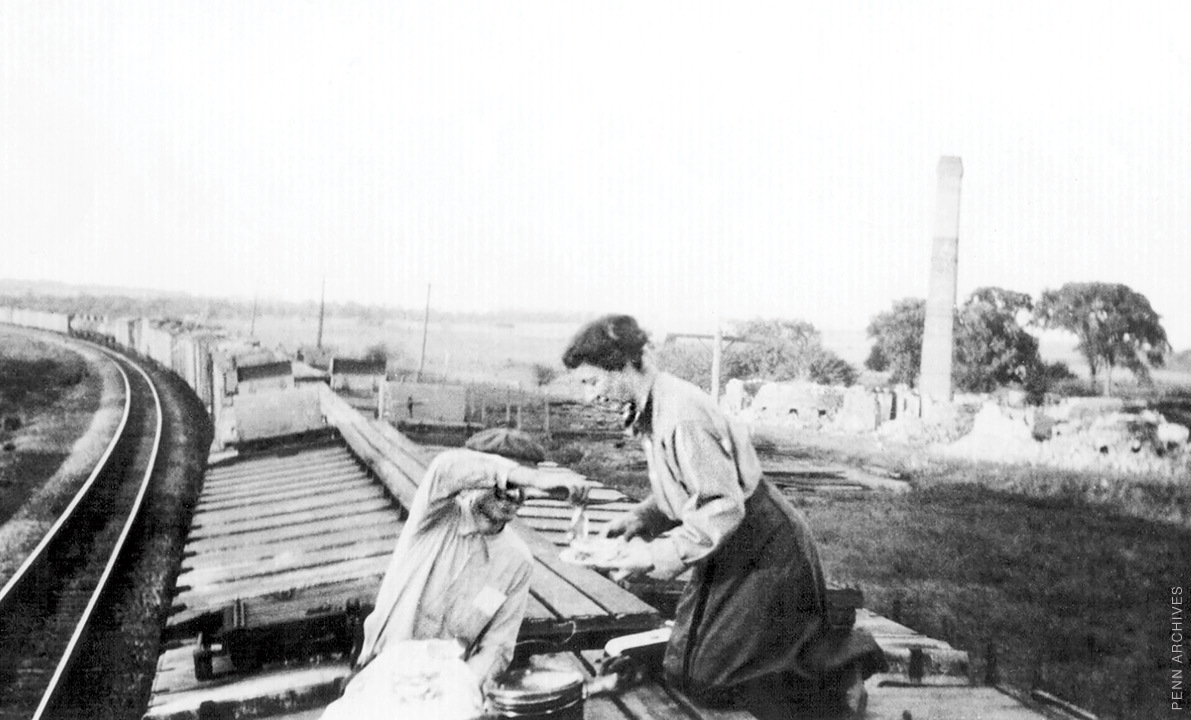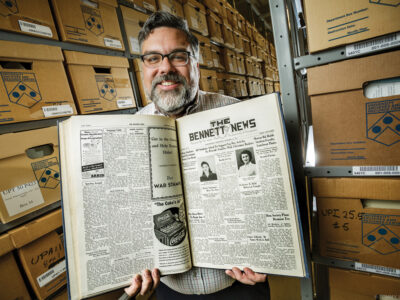
When she was 12, Mary Engle Pennington Gr1895 was so fascinated by a book on medical chemistry that she went to the nearby University of Pennsylvania and demanded a professor explain to her what she had read. He suggested she return when she was older and he would help her then. Determined, she did return—and would go on to become one of the first women to earn a PhD at Penn and later the first chief of the US Department of Agriculture’s (USDA) Food Research Laboratory.
Although she was denied a bachelor’s degree from Penn because of her gender, she was issued certificates of proficiency in biology and science in 1892. She earned her PhD in 1895, after supporting faculty invoked an underused statute that allowed her to enroll in the graduate program.
After graduation, she made a name for herself as a scientist, serving as a Penn fellow in botany and then a Yale fellow in physiological chemistry until 1898. She returned to Philadelphia and founded the Philadelphia Clinical Laboratory, where she performed bacterial analyses for physicians. The success of her independent research led to her appointment as director of the city’s new bacterial lab, and she developed sanitation standards for milk and dairy products that went on to be used nationally.
In 1905, she began working with Harvey Wiley, chief chemist of the USDA Bureau of Chemistry and a family friend, on cold storage methods. Specifically, he wanted her to investigate a claim that diners had been served a turkey that had been frozen for 10 years without getting sick (and even enjoying their meal). With no existing data on refrigerated food except for her own research on milk, she determined that poultry could be kept in good quality for one year at zero degrees Fahrenheit.
Impressed, Wiley recommended her to head the bureau’s newly created Food Research Lab, which was established to help enforce the Pure Food and Drug Act of 1906. Knowing that the only way she would be considered was if her gender was disguised, he submitted the hiring request under the name M. E. Pennington. She was hired and went on to use this gender-neutral name throughout her career.
In her lifetime, Pennington was issued five patents, including one for a poultry cooling rack and another for a method for freezing eggs; and in 1919, she was awarded a Notable Service Medal for her work on food transport to American troops during World War I. Surmounting gender barriers at the turn of the 20th century, she revolutionized the way food is transported and stored across the US—and is a large reason why we can enjoy fresh frozen food at any time of the year today.
She is buried in Laurel Hill Cemetery (see “Profiles,” this issue). —NP




